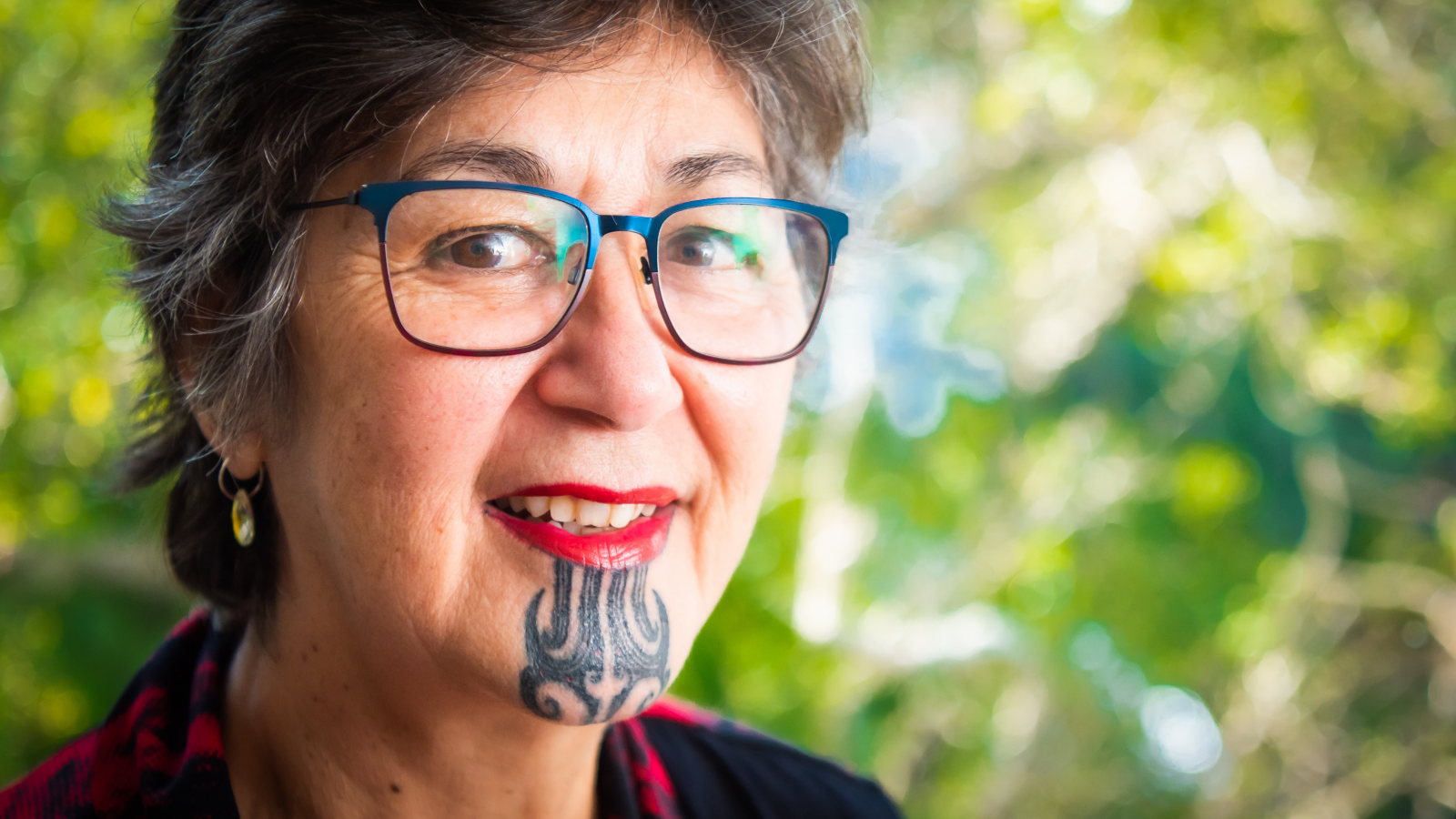Let’s follow Wales’ lead in language regeneration
Dr Mere Skerrett wonders why, as one of Aotearoa New Zealand’s official languages, te reo Māori gets only one focal week, as she ponders the likelihood England would have an ‘English Language Week’ or Germany a ‘German Language Week’.

“We should follow the Welsh, they’re a long way ahead of us. If you want a job in schools in Wales, you need to be able to speak Welsh. That’s what needs to happen here.”
Skerrett was raised speaking predominantly English, even though she was surrounded by monolingual Māori-speaking elders, at a time when English was the only language used in the education system of Aotearoa. Her determination to pursue her own Māori language journey began when she left high school, but really began in earnest when she had her first child and became involved in the Kōhanga Reo pre-school movement when he was four.
“I realised four was a little late. I realised then that in order to do a good job raising bilingual children you really needed to start from birth because of the domination of the English language.”
Her following four children all went through Kōhanga Reo from the start.
Skerrett was the first person to gain a doctorate based on Kōhanga Reo research. “My research participants were the children I was teaching in Kōhanga Reo and I was looking at the specific mechanisms built into our teaching that successfully regenerated te reo Māori.”
She then developed the first Māori-medium early-years teacher education degree at Te Whare Wānanga o Awanuiārangi in Whakatāne, moved to the University of Canterbury as a senior lecturer in 2009, and joined Te Herenga Waka in 2016.
Last year, as a student in the final graduating class of Te Panekiretanga o Te Reo Māori (Institute of Excellence in the Māori Language) before it closed, Dr Skerrett was proud to be gifted with a moko kauae in memory of the institute and symbolising the dedication and lifelong commitment needed for the regeneration of te reo.
“It’s a tohu, a marker—the stamp of this land,” she says. “And I find I am greeted by complete strangers as whaea [an aunty] because of my moko kauae. I wasn’t expecting how receptive people would be.”
Skerrett’s research includes bilingual education methodologies, language development in young children, equity issues as they relate to Māori as tangata whenua, and the transition of Māori learners into Māori-English bilinguals.
In a chapter for Te aotūroa tātaki: Inclusive early childhood education (NZCER, 2020), she argues all early childhood education teachers need to be “formative bilingual teachers” for Aotearoa to become a truly bilingual society.
“Eighty-three percent of all Māori children are in English-medium education. Our education system is framed as a choice between two equal options, English- or Māori-medium, but really there is a mainstream, with Māori-medium as an unequally funded sidestream.”
Why is it an underfunded optional extra, asks Dr Skerrett. “Why isn’t it a language on the curriculum to allow us to produce great bilingual Māori-English students? The Māori-medium sector does that very well, but unfortunately most of our children aren’t able to access that.”
She would like to see all teachers learn to speak fluent te reo Māori and English.
“It can be done now if people enrol in Victoria University of Wellington’s Te Kawa a Māui—School of Māori Studies and learn te reo alongside their teaching degree or go into a Māori immersion programme after completing their degree. But, really, teacher education needs to be reshaped, lengthened. What we’re doing currently in our teacher education programmes is not enough.”
As Head of School, Skerrett wants to facilitate a shift from the “‘one nation, one state’ New Zealander speaking from an English worldview. Māori were always marginalised for who we were. Many of our staff don’t understand that. I want to anchor our education in the middle of Te-Moana-Nui-a-Kiwa [the Pacific Ocean] in the heart of the South Pacific”.
One of the things Skerrett has put in place is a series of speakers for her staff hui. “For instance, we have Adjunct Professor Wally Penetito coming to do a two-hour workshop with us around Te Hurihanganui, the Ministry of Education project looking at transforming our system and eradicating racism in education.”
She is also a great supporter of Victoria University of Wellington’s Living Pā initiative, which would see the sustainable redevelopment of its marae precinct to provide a holistic education environment for students.
“How we can co-construct our tomorrows, our shared visions, hopes and dreams through education is the stuff of societal transformation,” says Skerrett.
“We need quality speakers of Māori, quality teachers able to speak good Māori language, just as there are requirements for them to be quality speakers of English, and that will expedite the transformation needed to make a difference for young children.
“Our system is already starting to transform, but unfortunately the pace of political developments and legislative change is glacially slow. Heoi anō rā me ū ki te kaupapa, whakamanahia Te Tiriti o Waitangi, hei whai oranga tātou ngā iwi o Aotearoa*.”
* Be that as it may, be steadfast in the endeavour (of language revitalisation), bearing in mind the commitment to honouring Te Tiriti o Waitangi, and the wellbeing of all sovereign citizens of Aotearoa
Read the original article on Newsroom.
